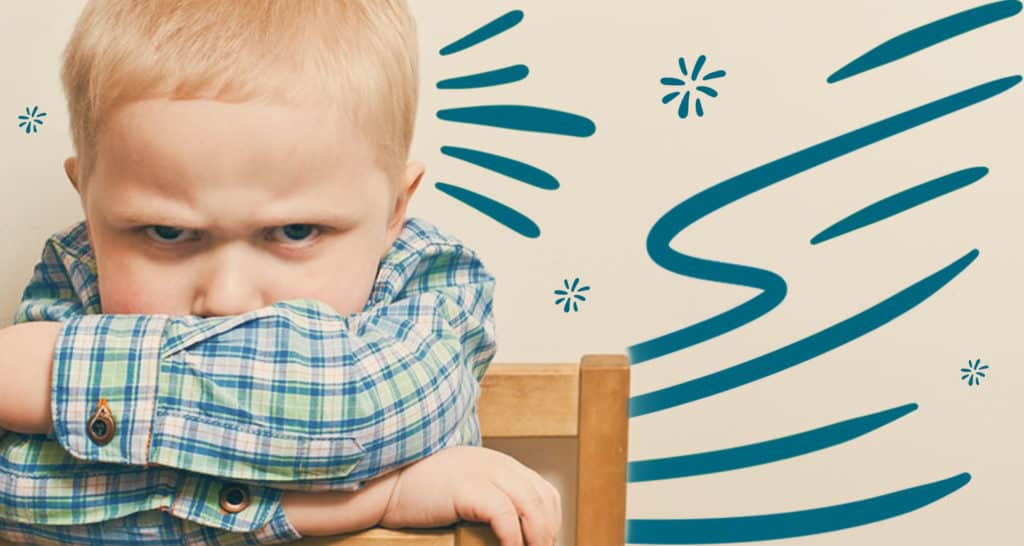Several years ago, one of my girlfriends asked if I would watch her two-month-old son, Josiah, while she had a short date with her husband. I happily consented. She assured me, “I’ll be back in time to feed the baby.” I nodded and settled in to rock her sweet bundle. I never thought that in a few short hours, I’d have an angry baby on my hands.
Josiah and I had a great time together until the clock ticked past feeding time. Unfortunately, I wasn’t equipped to meet the need, so there was absolutely nothing I could do. Instead, I gently whispered, “Oh baby, it’s going to be okay. You’re hungry, huh? Your momma will be home soon.” Of course, even my best attempts at consolation weren’t enough because Josiah wanted food, not verbal encouragement.
At first, his cries started out as whimpers that rose from his throat. By the time his mother arrived a short time later, his angry screams originated from somewhere down inside his toes.
Because Josiah, like every infant, was very sensitive to unmet needs, his distress escalated quickly and he responded the way God designed — with strong emotion.
An Angry Baby is Expressing Needs
In his book, When Kids Are Mad, Not Bad, Henry A. Paul , M.D. describes the kind of anger that Josiah exhibited as developmental anger — anger that aids infants in getting their basic needs met.
Can you imagine what would happen if Josiah couldn’t cry, scream, or become angry? Naturally, his mom would never know when to change his diaper, feed him, or put him down for a nap. Anger is critical to help babies communicate with the world.
If your infant expresses developmental anger, remember it’s normal and that you shouldn’t take it personally. Of course, sometimes you might feel like pulling your hair out, but the best thing to do is remain calm, take a deep breath and ask yourself if your baby is hungry, uncomfortable, too hot or cold, over-stimulated, feeling isolated, experiencing an upset stomach or dirty diaper or if he just needs to be held.
There are times when I’m exhausted and get cranky, too. No one knows when this happens, because as an adult, I’ve developed the ability to master my moods. Underneath, however, I may be screaming, “I’m mad right now!” It’s no different from infants, only they haven’t developed the necessary skills to monitor how they feel or understand their responses. That’s why when they want something, there’s no question about it.
If you’re frustrated, take heart! Your infant’s anger is a tool to help him learn to master his environment. From the time he’s an infant, you’ll need a positive attitude because he’ll experience anger when he’s a toddler too.
Development in Angry Toddlers
After Josiah turned two, I wonder how many times his mother picked up toys he repeatedly threw on the ground, listened to him tell her “No!” and watched him throw temper tantrums? If you’re the parent of a angry toddler, you can probably relate.
From 18 months to four years it’s normal for a child to begin to exert his independence so there will be times when he gets angry.
Think back to the last time you really wanted to do something and someone said that you couldn’t. Did you get angry? Imagine how a toddler must feel when he is curious about many things, wants to test drive the world, thinks he can, but you tell him that he can’t. He sees you, his sister and the family dog doing what he wants to do and yet you tell him “no.” Add his limited verbal communication skills to the mix, and you’ve got a recipe for frustration.
During college, I watched a video in my psychology class that showed that a toddler can understand hundreds of words before she can speak. Can you imagine living on a planet in which you can understand numerous words and gestures and yet you can’t verbally respond?
Angry Babies and Toddlers Are Showing Signs of Growth
Rather than seeing your toddler’s anger as negative, or taking it personally, you can view it as a sign of growth. In his book, Dr. Paul also writes: “Parents often feel consternation about their child’s anger. They think they have to solve the child’s problem immediately, if not sooner. This kind of unrealistic demand on oneself can cause a parent to panic when confronted with an angry child and to become very angry at oneself as well. He feels the child’s anger is his failure.”
Again, remember that having an angry toddler isn’t your fault and it’s normal. It’s a part of your child learning to master his world. So what can you do to help your angry toddler manage her outbursts?
Always Be Prepared
During elementary school teacher training I learned that the best defense against discipline problems is preparation. It’s the same way with lessening your toddler’s outbursts.
Create an environment to support your child’s curiosity and energy level. This means running outside, visiting a nearby jungle-gym, keeping toddler toys available, as well as toys for travel, providing a “quiet bag” with crayons, snacks or his favorite cuddly toy. Most of all, be an engaged, not lazy, parent. This means that when he wants to go outside to the sandbox, go with him. Otherwise, you’re asking for disaster.
Okay, so what if you are always prepared and your child still becomes angry? What steps should you take?
Naturally, if your child is throwing a tantrum and he is in physical danger or going to hurt someone else, you might need to exert physical control and remove him to a new environment. The younger he is, the more you may need to intervene.
Take a Time-Out
Create a place for your angry baby or toddler to take a time out. Rather than leave him, (unless he is mad at you and needs time away from you) stay with him while he is cooling off. While you stay with him, he’ll get the message that you are being supportive, you’re not going to leave and that his anger doesn’t intimidate you. He’ll also learn that there are other more appropriate ways to manage his anger.
Try To Discover Your Child’s Angry Emotions
If your child isn’t talking yet, it may take a little detective work for you to understand why he is angry. Begin by observing his environment and reviewing what you know about his personality and small children that may have pushed his “angry button.”
Pray
Finally, and most importantly, pray for your child. As you pray, you’ll develop the heart of compassion that you need if you feel like you’re at the end of your rope.
























